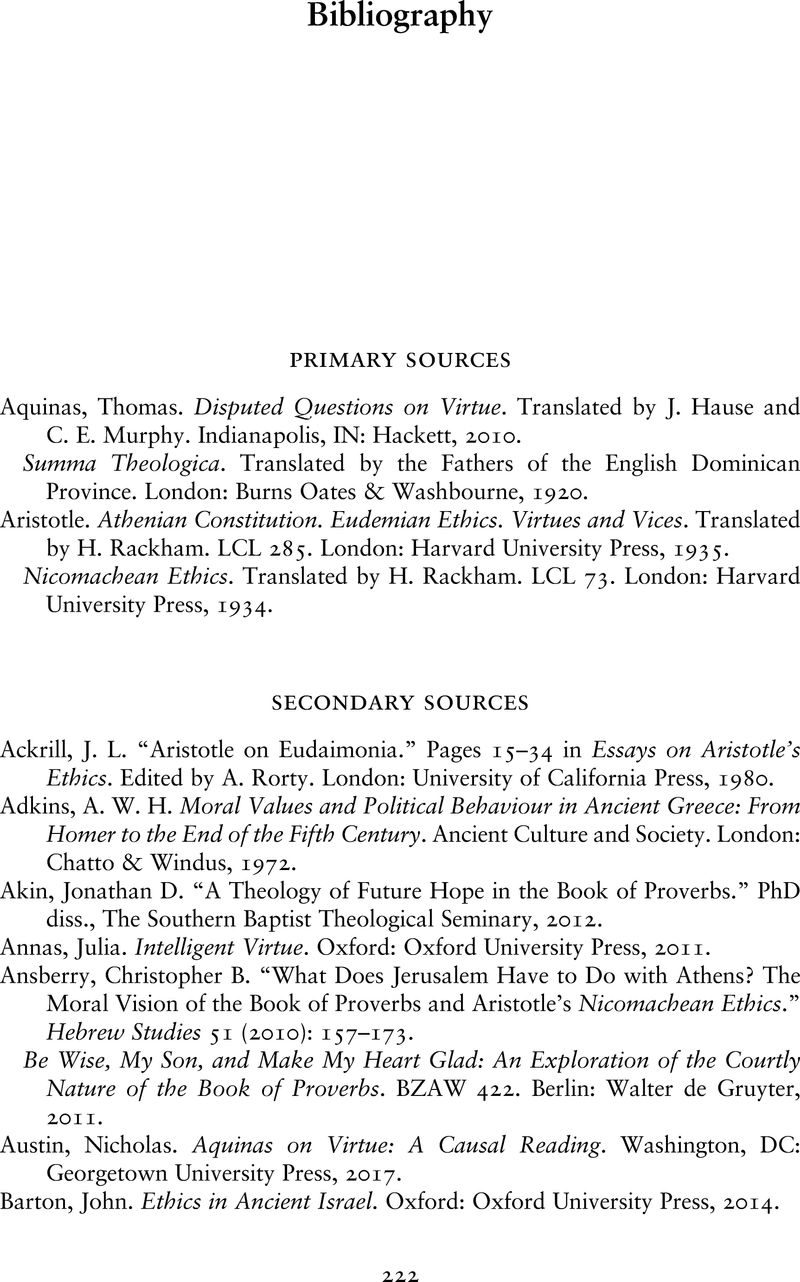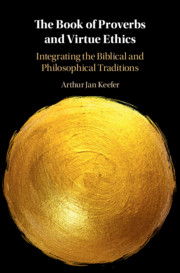Book contents
- The Book of Proverbs and Virtue Ethics
- The Book of Proverbs and Virtue Ethics
- Copyright page
- Dedication
- Contents
- Tables
- Preface
- Note on Texts and Translation
- Abbreviations
- 1 Introduction
- 2 Views of Virtue in Philosophy
- 3 Moral Virtues in Proverbs
- 4 Honor, Shame, Humility, and Pride
- 5 Courage, Work, Speech, and Friendship
- 6 Theological Virtues in Proverbs
- 7 Moral Agents and the Presentation of Virtue
- Bibliography
- Index of Ancient Sources
- Index of Authors and Topics
- References
Bibliography
Published online by Cambridge University Press: 22 October 2020
- The Book of Proverbs and Virtue Ethics
- The Book of Proverbs and Virtue Ethics
- Copyright page
- Dedication
- Contents
- Tables
- Preface
- Note on Texts and Translation
- Abbreviations
- 1 Introduction
- 2 Views of Virtue in Philosophy
- 3 Moral Virtues in Proverbs
- 4 Honor, Shame, Humility, and Pride
- 5 Courage, Work, Speech, and Friendship
- 6 Theological Virtues in Proverbs
- 7 Moral Agents and the Presentation of Virtue
- Bibliography
- Index of Ancient Sources
- Index of Authors and Topics
- References
Summary

- Type
- Chapter
- Information
- The Book of Proverbs and Virtue EthicsIntegrating the Biblical and Philosophical Traditions, pp. 222 - 230Publisher: Cambridge University PressPrint publication year: 2020

